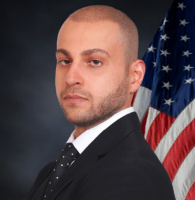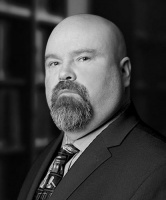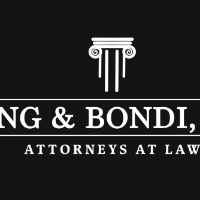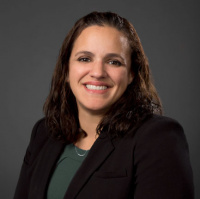Tinley Park Felony Lawyers, Illinois
Sponsored Law Firm
-
 x
x

Click For More Info:
-
Sexner & Associates LLC
Serving Chicago and all of Ilinois» view mapPersonal Injury, Medical Malpractice, Workers' Comp Millions of Dollars Awarded
Since 1990, our experienced legal team has helped thousands of families and collected millions of dollars on their behalf. Call now for free information.
800-854-5581
Sponsored Lawyers
1-10 of 10 matches
Criminal, DUI-DWI, Felony, White Collar Crime, Personal Injury
Khaled Issa is a well-versed trial attorney with more than 10 years of legal experience. Knowledgeable in many areas of law, Attorney Issa concentrates his practice in the areas of criminal defense and personal injury. In 2021, Kal established his private practice, Issa Law, LLC, after his former partner James Payonk retired. Located in Orland Park, Attorney Issa works diligently to help his clients achieve legal success. To schedule an initial consultation with a skilled Will County criminal defense attorney, visit Kal's website or call 708-966-2408.
(more)Divorce & Family Law, Real Estate, Felony, Car Accident, Wrongful Death
James A. Podgorny is a sole practicing attorney, which means he will be the only attorney you will deal with at the firm. You will not be shuffled amongst many associates who will not necessarily know the current status of your case, as is commonly found in large law firms. Mr. Podgorny will always know the status of your file, and you can always address your concerns directly with him. Mr. Podgorny will return your telephone calls in a timely manner, leaving you free from the stress and anxiety of worrying if you have an attorney focused on your matter at hand.
(more)Criminal, Felony, DUI-DWI, Misdemeanor, Expungement
Marisa Bondi, one of the managing Partners & Owners at King & Bondi, LLC., has years of experience practicing specifically Criminal Law and Traffic. Her focus is to help her Clients achieve the best outcome for their specific needs. She has been participating in trials/litigating for years. She serves Will & DuPage County. Please contact her for any questions you may have.
(more)Criminal, DUI-DWI, Juvenile Law, Traffic, Felony
Kristine Honiotes is a trial lawyer with over 12 years of experience. As a former Will County Assistant Public Defender, she defended all types of felony and misdemeanor cases including murder, domestic violence, DUI, drug offenses, and other serious felony offenses. From our office in Joliet, Illinois we serve clients throughout Will County, DuPage County, and Cook County including but not limited to Lockport, Plainfield, Crest Hill, Romeoville, Bolingbrook, Aurora, New Lenox, Mokena, Homer Glen, Frankfort, Peotone, Shorewood, Manhattan, Wheaton and Downers Grove.
(more)Criminal, Misdemeanor, Felony, DUI-DWI, Expungement
We specialize in bringing the law to your corner. We are dedicated to understanding what results you want and to helping you understand what actions we can take on your behalf. We will work with you every step of the way to make sure that you understand the choices you are making and feel empowered to make them.
(more)



 Our Success
Our Success  Awards
Awards Español
Español





